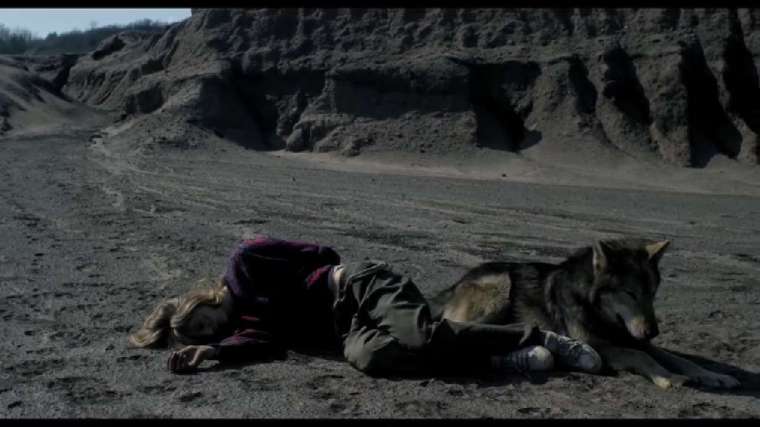It’s that time of year: time for the London Film Festival (LFF)! And while I’ve not been doing a good job of getting reviews up on my site recently aside from my regular Criterion watch, I thought I’d best share the snippets of the films I’ve been watching at the festival. It’s unlikely any of them will break out as great successes in the coming year, because my policy these last two years has been to go and see films I don’t think will get another screening (with one or two exceptions).
Day One of the LFF was Wednesday 5 October, with its big premiere being the opening gala of Amma Asante’s A United Kingdom which seems to be getting mixed reviews, though I shall go see it when it gets a proper release next month.
Day Two was Thursday 6 October, and I saw my first three films. Two of them I think are pretty obscure, but the Ava DuVernay documentary was always going to get a pretty strong release in the US election season and indeed, as I learned subsequent to purchasing my festival tickets, it’s already on Netflix.

Wild (2016). There are some unsettling thematic strands being explored in this film about a young woman who is, essentially, in love with a wolf. Themes dealing with female sexuality, throwing off the burdens and expectations of bourgeois conformity, living outside the capitalist system, stuff like that. At times I felt the film wasn’t doing justice to all its ideas, but at other times it seemed pretty on the nose. Ania (Lilith Stangenberg, with the intensity of a young Sarah Polley) works as an IT person and general dogsbody at some kind of recycling company, while finding herself newly living alone and restless. The film has some nice little observations (all the women in the office picking up after their oafish boss Boris) and moments of great humour piercing the odd alienation that much of the film essays. It’s weird, but in a watchable way, and a provoking way.
13th (2016) The thesis of this new made-for-Netflix documentary is that the prison-industrial complex of the modern United States is effectively perpetuating slavery by another name (the constitutional amendment of the title rescinds slavery except for convicts). It’s difficult to mount any criticism of it as a film* because it’s so focused—through sadness, anger and despair—on driving its message home that it’s hard to look away. A range of activists, scholars and politicians (of whom, surprisingly, Newt Gingrich doesn’t come off as being even close to the worst) comment on the legacy of America’s bitterly divided racial history in creating a massively commercialised and exploitative system that in preying overwhelmingly on the poor (often with little interest in their culpability for their charged crimes) also preys overwhelmingly on people of colour, deracinating communities and continuing to deprive them of voice in opposing the system’s swift extension during the 80s and 90s. Well, DuVernay certainly provides this voice and I can only hope it reaches the people it needs to. Sure it sometimes seems like it’s going after Trump and his cronies (and why not) but neither Clinton exactly comes out slathered in glory, and Obama is largely notable by his absence in this story. It effectively folds in police brutality and the #BlackLivesMatter movement, but also contextualises each as part of a history seemingly doomed to repeat. Sad but urgent stuff.
(* I only want to mention the endless gliding camera around its interview subjects; I found that technique distracting, but I daresay it works for Netflix, where it’s scheduled to appear on 7 October, and may many more see this film.)

A Day for Women (2016). Sometimes you can watch a film and the fact it exists and what it documents and the point of view it represents, the voice it’s presenting, is enough—to the extent that it hardly matters how ‘good’ a film it is. I guess that sounds like an apologia for not liking it, but really all I can say (not being Egyptian, not being a woman, not being a whole lot of things, a film writer not least) is that it’s not made for me, and that for what it sets out to do, it does well. It’s a melodrama, with some good, subtle performances (and some which seem less so), about a community along a small alleyway in a big city, and the local pool which opens to women only on Sunday, and brings them all together. I liked the shared stories, the way they all have to step carefully on makeshift stones over a deluged alley to get to their homes, the incipient love affairs and personal turmoil each is navigating. Even the ‘simple’ woman and the ‘tramp’ archetypes were challenged by the end, and if nothing else it made a good case for safe spaces.
CREDITS


Wild (2016) [Germany] — Director/Writer Nicolette Krebitz; Cinematographer Reinhold Vorschneider; Starring Lilith Stangenberg, Georg Friedrich; Length 97 minutes. Seen at Vue West End, London, Thursday 6 October 2016. 
13th (2016) [USA] — Director Ava DuVernay; Writers DuVernay and Spencer Averick; Cinematographers Hans Charles and Kira Kelly; Length 100 minutes. Seen at BFI Southbank (NFT1), London, Thursday 6 October 2016. 
يوم للستات Yom Lel Setat (A Day for Women, 2016) [Egypt] — Director Kamla Abou Zekri كاملة أبو ذكري; Writer Hanaa Attia هناء عطية’; Cinematographer Nancy Abdel-Fattah نانسي عبدالفتاح); Starring Ilham Shaheen إلهام شاهين, Nahed El Sabaï ناهد السباعي; Length 123 minutes. Seen at Picturehouse Central, London, Thursday 6 October 2016. 

